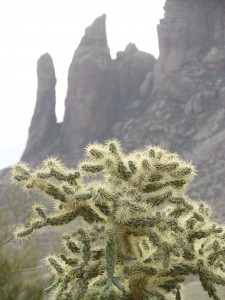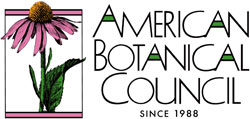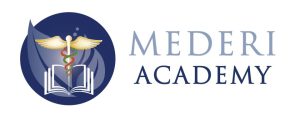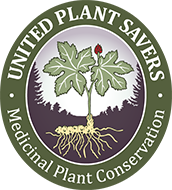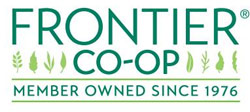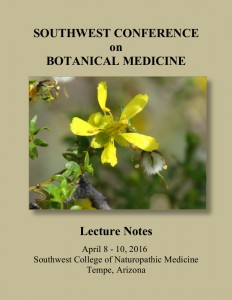
NOTE: This is the description of last year’s conference. Here is information for 2017:
Southwest Conference on Botanical Medicine, April 7 – 9, 2017
(Past Event – Thanks to everyone!)
Friday, April 8 to Sunday, April 10, 2016
Southwest College of Naturopathic Medicine (SCNM) in Tempe, Arizona
Register at the door for $359.
Directions and information Phone 541-482-3016
Registration fee covers all lectures on Saturday and Sunday. Friday events, lodging and meals are extra. Over 30 lectures to choose from by leading practitioners and researchers in herbal medicine. Speaker bios and topics. Schedule
Theme: Reproductive health
Also offering: Friday pre-conference intensive and two field studies, panel discussion, garden talks and an herb walk at the beautiful Desert Botanical Garden in Phoenix.

Featured Presentations
Integrating the latest research on reproductive (and other) conditions with botanical medicine. Click here for a complete list of speakers and topics.
- Multiphasic Dosing During a Woman’s Cycle
- Autism Spectrum Disorders: The Search for Answers
- Environmental Links to Infertility

Cholla cactus in Superstition Mtns All desert photos on this page by Mimi Kamp - Prostatitis, BPH and Prostate Cancer
- Heavy Cannabis Users: Side Effects and Withdrawal
- Aromatase Excess Syndrome and Reproductive Health
- Herbs for Hair Loss and Male Pattern Baldness
- Common Lifestyle Patterns in reproductive disorders
Plus herb walks and lectures in the SCNM herb garden.
Additional Intensive Workshops
Pre-conference Intensive: New Drugs in Cancer and Synergistic Natural Medicines
Donald Yance
Friday, April 8, 2 PM – 5:45 PM at SCNM ($65)
Friday Field Study: First Water Trailhead, Superstition Wilderness
Phyllis Hogan SORRY THIS EVENT IS FULL
April 8, 8:30 AM to 12:30 PM ($55)
Afternoon Friday Field Study at Usery Mountain Park
JoAnn Sanchez
April 8, 2 – 6 PM (Note new early evening time. $55)
Location: Southwest College of Naturopathic Medicine
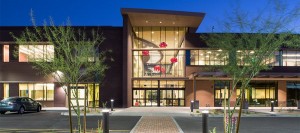
Address: 2140 E. Broadway Rd, Tempe, Arizona
One of the first college campuses constructed with sustainable / green building techniques, Southwest College of Naturopathic Medicine (SCNM) provides an ideal learning environment: comfortable indoor classrooms and an herb garden for outdoor lectures and meals. LEED Platinum certification is pending for the Commons (pictured right) for promoting renewable energy, saving resources and having a positive impact on the health of its occupants.
What makes SCNM such a great place for an herbal conference?
Hotel: Embassy Suites, Tempe
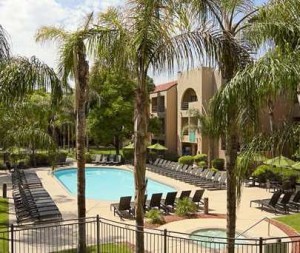
Just minutes away from SCNM, Embassy Suites offers two-room suites beginning at $124/night (plus tax). (800) 305-1369. Group #SB1. Discount good until March 8.
NEW! Register for your room online. It only takes a few minutes.
Lodging includes complimentary:
- Airport transportation
- Van service from hotel to SCNM
- Made-to-order hot breakfast with omelet station
- Evening reception with drinks and snacks
- WiFi in all rooms
Register for lodging online. Or call (800) 305-1361. Group # SB1

Friday April 8
8:30 AM – 12:30 PM
Field Study 1: First Water Trailhead, Superstition Wilderness
Phyllis Hogan THIS EVENT IS FULL
Spend a Spring morning in the Superstition Wilderness and discover an unexpected abundance of medicinal plant diversity in this precious corner of the Sonoran desert. Step into the Garden Valley and find the elusive bluestar (Amsonia palmeri) while savoring the panorama of the Superstitions. ($55) 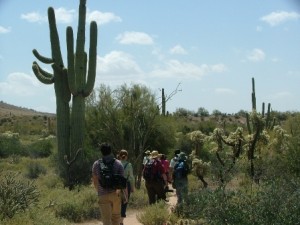
2:00 PM – 6:00 PM
Field Study 2: NEW! Early evening field study with JoAnn Sanchez, Usery Mountain Park
JoAnn Sanchez
Explores the unique desert medicinal plants found at Usery Mountain. Learn basic botanical identification, ecological methods of harvest and preparation of specific plant parts, traditional and contemporary medicinal uses. Sample desert remedies and experience their effects in their native habitat. ($55) More detailed description.
2:00 PM – 5:45 PM
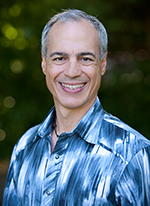 Preconference Intensive: New Drugs in Cancer and Synergistic Natural Medicines
Preconference Intensive: New Drugs in Cancer and Synergistic Natural Medicines
Donald Yance
Describes targeted molecular pathways in cancer, such as EGFR, HER2/neu, and the newly discovered immune checkpoint inhibitors. Discussion covers common drugs used to block these pathways, botanicals that target certain intracellular receptors, and the important synergistic role of specific botanical, nutritional, and dietary medicines that, when combined with conventional therapies, work to enhance treatment effectiveness, inhibit tumor resistance, and reduce side effects.
Discussion also includes molecular biomarkers for assessing patient response to these targeting agents in order to determine who may benefit from which drugs. Case studies provide clinical insights and illustrate an integrative approach. *CE Applications to be submitted for this event: Naturopathic Physicians: 3.5 pharmacy. NCCAOM 3.5 PDA points (Sorry, no credit for nurses, ACPE pharmacists or California NDs.) ($65)
More detailed intensive description .

Saturday April 9
7:30 AM – 8:30 AM Registration: Southwest College of Naturopathic Medicine Lobby
8:30 AM – 9:15 AM Opening Meeting: Welcome – SCNM Auditorium
(Concurrent lectures–choose one–no need to sign up in advance.)
9:30 AM – 11:00 AM
Autism Spectrum Disorders-The Search for Answers
David Winston, RH (AHG)
The incidence of autism spectrum disorders (ASD) has increased dramatically over the past 10 years. In this class we discuss what these disorders are, the potential causes of ASD and conventional treatment options. We then explore the use of diet, herbs, nutritional supplements and other complementary therapies to help these children and adults live healthier and more functional lives.
Common Lifestyle Patterns in Reproductive Disorders
Paul Bergner
Broad patterns of lifestyle, diet and constitution are often overlooked in favor of specific treatments for reproductive disorders. Seven easy-to-identify diet and lifestyle patterns are described that lie at the root of many female or male reproductive complaints. Dietary interventions and herbal allies can help correct those problems at their root.
Nutritional and Botanical Influences on Breast Cancer Prevention
Tori Hudson, ND
This lecture looks at new research on select nutraceuticals, dietary habits and plants that influence breast health; nutrients that reduce breast density; botanicals and nutrients for reducing inflammation; and those that alter malignant cell initiation and proliferation.
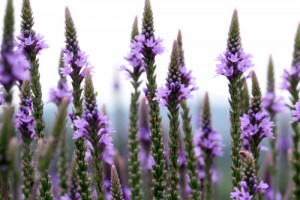
The Doctrine of Signatures: Flower Essences to Support Reproductive Health (SCNM Herb Garden)
Rhonda PallasDowney
This garden talk covers the doctrine of signatures of six plants / flowers and their use as flower essences and whole plant medicine for reproductive health: mullein, pomegranate, strawberry hedgehog, vervain, yellow monkeyflower and wild rose.
11:00 AM – 11:30 AM
Refreshments and Exhibit Break
11:30 AM – 1:00 PM
Adolescent Angst: The Teenage Brain on Testosterone
Kenneth Proefrock, ND
Specific lifestyle, psychological and botanical practices that help mitigate the angst, frustration, and physical discomfort inherent in human adolescence. We address acne, allergies, emotional lability, menstrual irregularities, sleep disorders, diet, and psycho-social concerns with a variety of botanicals and nutraceuticals.
Herbal Galactagogues and Healthy Lactation
Mary Bove, ND
Plants which act to increase the production and secretion of breast milk are known as galactagogues. This class looks at traditional use and current science on the actions and mechanisms of galactagogue herbs. Specific plants, herbal formulas, safe herbal preparations, and therapeutic application are discussed.
Palpitations, Heart Arrhythmias, and Atrial Fibrillation: Balancing the Heart
Jason Miller, LAc
This presentation explores the modern biomedical and herbal medicine perspectives on the pathophysiology, causes and treatment of atrial fibrillation (AFib). A look at pharmaceutical, surgical, and ablative options provides insight into the mechanisms underlying this condition. The complex relationship between the heart and the endocrine and neuroendocrine systems is often overlooked–by treating both the symptoms and their causes, botanical and nutritional medicines can provide a long-term solution for many patients suffering from AFib.
What are Cacti About? (Lecture and Demonstration in the SCNM Herb Garden)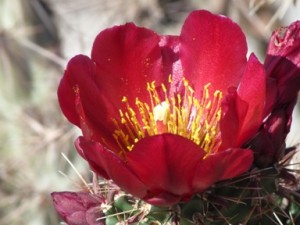
Mimi Kamp
Participants gain personal insight into the energies and therapeutic uses of this very special botanical family. We talk about issues of heart, boundary, trauma, social and family dynamics, the feminine principle and its gender applications. The herbal actions and ethnobotany of cacti are discussed with an emphasis on vibrational qualities and plant essence applications.
1:00 PM – 2:00 PM
Lunch (with pre-paid ticket) and Exhibit Break
2:00 PM – 3:30 PM
Botanicals for Aromatase Excess Syndrome: Reducing Estrogen Dominance in Men and Women; Optimizing Reproductive Health
Donald Yance, RH(AHG)
Aromatase excess syndrome (AES) is a common age-related problem affecting breast and prostate health, thereby increasing the risk of several types of cancer, obesity, and cardiovascular disease. In men, it manifests as low testosterone, feminization, and hypogonadism, and in woman, contributes to weight gain, breast tenderness, and a host of hormone-related conditions. Phytonutrients such as chrysin, berberine, biochanin A, quercetin, isoliquirtigenin, resveratrol, green tea, and grape seed extracts can inhibit activation of hormone-dependent cancers and provide a myriad of health benefits.
Abnormal Uterine Bleeding: Causes and Integrative Solutions
Tori Hudson, ND
Special attention is given to abnormal bleeding due to perimenopause and uterine fibroids. Treatments focus on traditional and evidence-based natural therapies, but also includes hormone management as an important part of the treatment options.
Multiphasic Dosing During a Woman’s Cycle
Katie Stage,ND, RH(AHG)
A woman’s hormones are not static throughout the month and it can be beneficial to adjust treatment approaches accordingly. We discuss biphasic and even triphasic dosing. Topics include how and why to change herbs throughout a woman’s cycle as well as relevant herbs for this kind of dosing.
Chaga Mushroom Inonotus obliquus
Phyllis Hogan
Chaga has been used for milennia for promoting longevity and preventing the degenerative diseases of aging. More recently it has been researched for cancer and inflammatory conditions of the skin. It grows as a black mass on the trunks of birch trees—in this lecture find out how to harvest, prepare and use chaga medicine.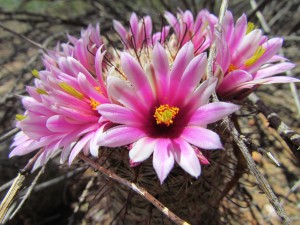
3:30 PM – 4:00 PM
Refreshments and Exhibit Break
4:00 PM – 5:30 PM
Working with the Heavy Cannabis User: Side Effects, Withdrawal Symptoms and Constitutional Considerations
Paul Bergner
Heavy Cannabis use can have acute and chronic side effects, including a cycle of dependence and addiction. Side effects include deficits in cognition and executive function (more serious in those who begin using Cannabis heavily in their teenage years); Cannabis emesis syndrome; female and male reproductive dysfunction; and a set of syndromes in the traditional Chinese system of medicine. Clinical case studies included.
Plant Intelligence (SCNM Herb Garden)
Jill Stansbury, ND
We look at plants as intelligent beings, no less alive than ourselves, bridging the continuum between the mineral and animal realms. The shape, form, color, and pattern expressed by plants hints at their personality and innate wisdom. The Amazonian concept of Plantas maestros (plant teachers) embraces the notion that plants have intelligence and lessons to share–from the use of plant medicines, to dietas, to herbal baths, and simple study.
Making Love: An Herbal Guide to Sexual Health
David Winston, ND
An examination of all that goes into a healthy sexual relationship, from behavioral patterns of respect and caring, to herbs for enhancing sexuality and treating a variety of conditions such as anorgasmia, premature ejaculation, erectile dysfunction and other issues.
Herb Walk (Desert Botanical Garden- $20.00 admission)
Mimi Kamp
The April bloom is usually spectacular in this 145-acre preserve offering over 4,000 desert plant species. Learn to identify the medicinal plants of the desert and how to use them for medicine. Reserve your spot in advance at conference registration on Saturday. Carpools leave from SCNM at 3:45 PM.
6:00 PM – 7:00 PM
Dinner and Exhibit Break
7:00 PM – 8:30 PM
Panel Discussion: Integrating New Developments in Medical Science with Botanical Medicine
Kenneth Proefrock, ND, Jason Miller, LAc and Jill Stansbury, ND
Exciting new discoveries in medicine (genomics, cancer immunotherapy and a host of others) provide new information for the herbalist. How do we integrate natural and botanical medicine with these new findings to benefit those we help?

Sunday April 10
9:00 AM – 10:30 AM
Chronic Prostate Conditions: BPH and Prostate Cancer, Part 1 NEW! (Part 2 added Sunday afternoon, 2 – 3:30 PM)
Jason Miller, LAc
The information in this lecture is so comprehensive we’ve added a Part 2 after lunch. Part 1 reviews chronic prostate disease physiology and presents new research and therapeutic developments in the management of prostate cancer and BPH.. Part 2 continues by describing a collaborative approach, which is often the most beneficial strategy. Using botanicals, nutrients and lifestyle changes along with pharmaceuticals and other medical treatments can help mitigate side effects and enhance positive outcomes.
Herbs and Nutrition for Cardiovascular Health and Disease
David Winston, RH (AHG)
Begins with basic recommendations for dietary, lifestyle and herbal therapies for improving cardiac function. Describes cardiotonic botanicals, and therapies for hypertension, atherosclerosis, coronary artery disease and hypercholesterolemia. The latest findings aid in a new understanding of the role of botanicals in preventing inflammation and the accumulation of small-particle lipids in the arteries..
Endometriosis: A Comprehensive Approach
Tori Hudson, ND
Tori Hudson draws on case presentations and therapeutic protocols to assess the multiple mechanisms involved in endometriosis. Treatment strategies address prostaglandin issues, altered cellular immunity, natural killer cell and T-cell dysfunction, growth factors, estrogen stimulation and pharmaceuticals already prescribed.
Mechanistic Botanical Medicine: Defining anti-cancer, anti-viral and anti-bacterial properties and standardization
Jeffrey Langland, PhD and the SCNM researchers
Sarracenia purpurea extracts have been found to contain broad anti-viral activity with the potential to induce oncolytic activity in cancerous cells. New ideas on the active constituents in common anti-viral herbs (like Melissa) have also come to light as a result of this research. Compounds in Coptis chinensis, Arcostaphylos uva-ursi and Larrea tridentata are described which may be useful in managing antibiotic-resistant infection.
10:30 AM – 11:00 AM
Refreshments and Exhibit Break
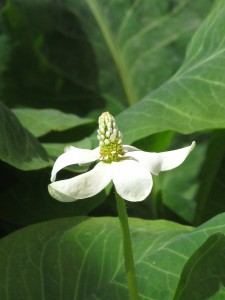 11:00 AM – 12:30 PM
11:00 AM – 12:30 PM
Modulating Neuroendocrine Responses to Stress with Botanicals
Kenneth Proefrock, ND
When humans have to adapt repeatedly to various stressors, classic symptoms of neuroendocrine dysfunction can result. We address anxiety, panic attacks, depression, menstrual irregularities, infertility, reactive hypoglycemia, and thyroid disease. We explore hormonal detoxification processes, receptor up-regulation and down-regulation, and botanical and nutritional therapies.
Luteal Phase Deficiency: What is it and What Herbs Can Do
Mary Bove, ND
The second half of the ovarian cycle is called the luteal phase. Optimal function of this phase is imperative for healthy menstruation and fertility. We look at functional assessment of the luteal phase, female reproductive complaints associated with luteal phase deficiency and natural therapies for treatments. Botanical medicines are discussed with case history review.
Herbs for Hair Loss and Male Pattern Baldness
Jill Stansbury, ND
What can be done for these conditions, which often have a deleterious effect on self-esteem? What about the drug therapies commonly offered (finasteride, minoxidil and hormones)? Natural therapeutics include botanicals, essential oils and nutrients; both internal and external applications.
Natural Lubrication Cream for Women of All Ages: Medicine Making in the Garden
Rhonda PallasDowney
The use of simple and non-toxic ingredients provide a welcome alternative to chemical drugstore preparations.
12:30 PM – 2:00 PM
Lunch and Exhibit Break
2:00 PM – 3:30 PM
The Lymphatic System and its Impact on Breast Health
Jill Stansbury, ND
Discusses when and why lymphatic congestion occurs and why it matters to breast health. Massage and other physical manipulation can help lymph circulation, and a number of alterative and tissue cleansing herbs are also useful, including cleavers, poke root and burdock root.
Chronic Prostate Conditions: BPH and Prostate Cancer, Part 2 NEW! (Continued from Part 1 earlier today, 9 – 10:30 AM)
Jason Miller, LAc
This second part of the lecture continues a review of new research and therapeutic developments in the management of prostate cancer and BPH. A collaborative approach is often the most beneficial strategy. Using botanicals, nutrients and lifestyle changes along with pharmaceuticals and other medical treatments can help mitigate side effects and enhance positive outcomes.
Environmental Links to Infertility
Marianne Marchese, ND
New evidence points to everyday toxic exposure as a cause for both male and female infertility. Learn how to avoid exposure and the botanicals and nutrients we can use to mitigate toxic damage and increase fertility in men and women. The lecture also presents medical treatments for infertility, their side-effects and possible potential herb-drug interactions.
An Experiential Journey: Three Ayurvedic Herbs in the Garden — Ashwagandha, Brahmi and Holy Basil
JoAnn Sanchez
Experience these Ayurvedic plants through all the senses: taste, smell, sight and touch, while hearing about their cultivation and clinical uses. JoAnn again provides a creative sampler of herbal preparations!
3:30 PM – 4:00 PM
Refreshments and Exhibit Break
4:00 PM – 5:30 PM
Botanicals, Biofilms and Chronic Infections
Paul Bergner
Bacteria responsible for hard-to-treat chronic conditions often exist in biofilm matrices which can evade attack by host immunity or pharmaceuticals. Plants have been in an evolutionary arms race with biofilms for more than 700 million years and some have developed sophisticated methods of killing bacteria and disrupting their ability to form biofilms. We discuss Allium, Hydrastis, Mahonia, Arctostaphylos, Acalypha and several other herbs, and their possible effects on chronic wounds, ulcers, sinus infection, bladder infection and vaginal infection.
The Troubled Trail of Testosterone: Social Expectation and the Search for Meaning on The Edge of Libido
Kenneth Proefrock, ND
This presentation discusses the physiological effects of testosterone in adult men and women, and conditions resulting from too much or too little available “T”. Fetal development of sex organs is affected by testosterone and estrogen, which brings us to a discussion of gender identity, and the question of nature vs nurture. Research supporting the determination of sexual orientation by fetal development and brain physiology is presented. Hormonal effects on adult sexual and social behavior are explored, and herbs that can be used to settle the mind, cope with stress and increase libido are described.
Women’s Thyroid Health
Mary Bove, ND
Herbal medicines can increase function and stimulation of the thyroid, decrease activity and inhibition of the gland, and influence thyroid hormone conversion in the peripheral tissues. We discuss botanical protocols for treating hyperthyroidism, hypothyroidism, and autoimmune thyroid diseases. Treatment protocols include botanicals, nutrients and lifestyle management. Several case history reviews are presented.
5:30 PM –5:45 PM
Closing Meeting

Paul Bergner
Paul Bergner is the Director of the North American Institute of Medical Herbalism in Portland, Oregon, where he offers seminar training in clinical skills, medical herbalism, nutrition, and nature cure. He supervised a teaching clinic in Boulder, Colorado from 1996 until 2012, has edited the Medical Herbalism journal since 1989, and is the author of seven books on herbal medicine.
Presentations:
1. Common Lifestyle Patterns in Reproductive Disorders
2. Working with the Heavy Cannabis User: Side effects, withdrawal symptoms, and constitutional considerations
3. Botanicals, Biofilms, and Chronic Infections
Mary Bove, ND
A clinical medical herbalist, Mary Bove had a practice in family medicine in Brattleboro, Vermont for over 20 years. She is the author of An Encyclopedia of Natural Healing for Children and Infants, and recently produced an iPhone App, Momma Nature’s Food Pharm Guide. She is currently the botanical educator for Gaia Herbs, Inc.
Presentations:
1. Women’s Thyroid Health
2. Luteal Phase Deficiency: What is it and What Herbs Can Do
3. Herbal Galactagogues and Healthy Lactation
Phyllis Hogan
The owner of Winter Sun Trading Company in Flagstaff, Phyllis Hogan founded the Arizona Ethnobotanical Research Association (AERA) to investigate, document and preserve native plant usage in the Southwest. She teaches ethnobotany programs for the Navajo & other tribes.
Presentations:
1. Friday Field Study First Water Trail, Superstition Wilderness (THIS EVENT IS NOW FULL)
2. Garden Lecture: Chaga (Inonotus obliquus), The Diamond of the Forest
Tori Hudson, ND
Currently a clinical professor at NCNM and Bastyr University, Tori Hudson has been in practice for over 30 years. She is the medical director of “A Woman’s Time” in Portland, Oregon and is a nationally recognized author (book: Women’s Encyclopedia of Natural Medicine), speaker, educator, researcher, and clinician.
Presentations:
1. Endometriosis: A Comprehensive Approach
2. Abnormal Bleeding: Causes and Integrative Solutions
3. Nutritional and Botanical Influences on Breast Cancer Prevention
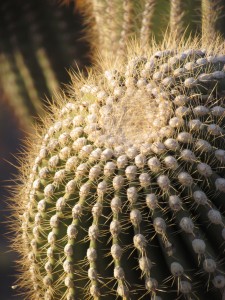 Mimi Kamp
Mimi Kamp
Mimi Kamp has been making plant medicine in the Southwest for over 35 years. Her field classes and presentations emphasize habitat, sustainability, Mexican and ethnobotanical usage, and direct perception and communication with the plants themselves. She is a well-known botanical illustrator and photographer.
Presentations:
1. Herb Walk at Desert Botanical Garden
2. Garden Talk: What are Cacti About?
Jeffrey Langland, Ph.D
Jeffrey Langland has spent much of his career investigating complex cellular defenses and immune responses against microorganisms, and comparing similarities between plant and human defenses against viruses. As a full professor and chair of the research department at SCNM, he brings new insight and innovative approaches to research for students in the field of naturopathic medicine.
Presentation:
1. Mechanistic Botanical Medicine: Defining anti-cancer, anti-viral and anti-bacterial properties and standardization
Marianne Marchese, ND
Marianne Marchese specializes in the influence of environmental chemicals on women’s health in her practice in the Phoenix area. She is the author of 8 Weeks to Women’s Wellness and is an adjunct faculty member at SCNM, teaching gynecology.
Presentations:
1. Environmental Links to Infertility
Jason Miller, LAc
Jason Miller practices botanical and nutritional medicine, acupuncture, and Asian bodywork at his clinic, Jade Mountain Medicine in Ashland, Oregon. He received his master’s degree in acupuncture and Oriental medicine from the Oregon College of Oriental Medicine in 2005, and completed a postgraduate internship at the “House of Celebrity Doctors” in Nanjing, China. His approach bridges the frameworks of traditional and modern medicine in the management of chronic disease.
Presentations:
1. Chronic Prostate Conditions: BPH and Prostate Cancer
2. Palpitations, Heart Arrhythmias, and Atrial Fibrillation: Balancing the Heart
Rhonda PallasDowney
The founder of Living Flower Essences and The Center for Plant Studies and Healing Arts in Cottonwood, Arizona, Rhonda is an herbalist and flower essence practitioner who teaches herbal studies, plant life and healing journeys in nature. She is the author of Voices of Flowers and The Healing Power of Flowers.
Presentations:
1. The Doctrine of Signatures: Flower Essences to Support Reproductive Health (SCNM Herb Garden)
2. Natural Lubrication Cream for Women: Medicine-Making in the Garden
Kenneth Proefrock, ND
A naturopathic physician practicing in Sun City, Arizona, Kenneth Proefrock is also the owner of Vital Force Naturopathic Compounding. He is the vice-president of the North American Board of Naturopathic Examiners and chair of the biochemistry portion of the naturopathic physician’s licensing exam.
Presentations:
1. Adolescent Angst: the Teenage Brain on Hormones
2. Neuroendocrine Responses to Stress and How to Re-sensitize Hormonal Responsiveness with Botanical Agents
3. The Troubled Trail of Testosterone: Social Expectation and the Search for Meaning along the Edge of Libido
JoAnn Sanchez
JoAnn Sanchez is the director of the herbalist training program at Southwest Institute of Healing Arts in Scottsdale (a 700-hour diploma program), for which she has recently published five textbook manuals. She teaches at the Southwest College of Naturopathic Medicine, where she also tends the medicine garden.
Presentations:
1. Field Study at Usery Mountain Regional Park
2. An Experiential Journey: Three Ayurvedic Herbs: Ashwagandha, Brahmi and Holy Basil (SCNM Herb Garden)
Katie Stage, ND, RH(AHG)
Katie Stage is a naturopathic physician practicing at the SCNM clinic in Tempe. She is a full-time faculty member at SCNM, teaching botanical medicine, hydrotherapy, GYN lab, and clinical skills. She also teaches Mayan healing techniques.
Presentations:
1. Multiphasic Dosing During a Woman’s Cycle
Jill Stansbury, ND
A naturopathic physician, Jill Stansbury specializes in women’s health, mental health, and chronic disease. She teaches on the faculty of National College of Naturopathic Medicine, where she was chair of the botanical medicine department for 25 years. She travels extensively in the Peruvian Amazon to study indigenous healers and their herbs.
Presentations:
1. Plant Intelligence
2. Herbs for Hair Loss and Male Pattern Baldness
3. The Lymphatic System and its Impact on Breast Health
David Winston, RH(AHG)
David Winston is an herbalist and ethnobotanist with 41 years of training and clinical experience in Cherokee, Chinese and Western/Eclectic herbal traditions. He offers a two year clinical training program in botanical medicine at David Winston’s Center for Herbal Studies and is the founder and president of Herbalist and Alchemist, Inc.
Presentations:
1. Herbs and Nutrition for Cardiovascular Health and Disease
2. Autism Spectrum Disorders: A Search for Answers
3. Making Love–An Herbal Guide to Sexual Health
Donald Yance
An herbalist and certified nutritionist, Donald Yance practices at the Mederi Centre for Natural Healing in Ashland, Oregon, where he specializes in the treatment of cancer and other chronic diseases. He is the founder and president of the Mederi Foundation, a nonprofit organization for professional education and clinical research in integrative medicine, and president and formulator of Natura Health Products.
Presentations:
1. Friday Pre-conference Intensive: New Drugs in Cancer and Synergistic Natural Medicines
2. Botanicals for Aromatase Excess Syndrome – Reducing Estrogen Dominance in Men and Women for Optimizing Reproductive Health and Reducing Disease Risk

Registration Fees
Register at the door for $359.
Directions and information Phone 541-482-3016
Herbal Conference Location
Southwest College of Naturopathic Medicine
2140 E. Broadway Rd.
Tempe, AZ 85282
Read more about SCNM .
Lodging
Embassy Suites, Tempe:
Rooms start at $124/night plus tax. (800) 305-1369. Group #SB1. Discount good until March 8.
NEW! Register for your room online. It only takes two minutes. Click here to get started.

Lodging includes complimentary:
-Airport transportation
-Van service from hotel to SCNM.
-Made to order hot breakfast with omelet station
-Evening reception with drinks and snacks.
-WiFi in all rooms.
Transportation
The closest airport is Sky Harbor International Airport. If you are flying to Sky Harbor Airport in Phoenix, van service is complimentary to the Embassy Suites in Tempe. Call the front desk 480-897-7444 when you arrive and they will send the van for you. For other airport transportation, use the SuperShuttle.
If you are driving, the Southwest College of Naturopathic Medicine (SCNM) is located at 2140 E. Broadway Rd in Tempe, AZ (on the north side of East Broadway, just west of the intersection of Price and E. Broadway).
Cancellations
Before March 23, registration fees will be refunded minus $50 processing per registrant. No refunds can be given after 3/23/16. Refund requests should be sent in writing or email to the conference office.
Continuing Education
See more CE details here. Credits depend on how many lectures are attended.
• Naturopathic Physicians: Approved:
Arizona NDs 21 possible general hours of which 10 can be pharmacy. Includes attendance at Friday morning and afternoon events
Oregon NDs 17 possible general hours of which 10 can be pharmacy for selected lectures. Includes attendance at Friday pre-conference intensive.
.
• Acupuncturists: Approved: 21 PDA points (hours) from NCCAOM.which includes attendance at Friday morning and afternoon events.
• Nurses: Due to changing regulations on the national level (ANCC), contact hours in nursing can no longer be offered
• A certificate of attendance is available to any participant who requests it
More CE details.
Lecture Notes
 Lecture notes are compiled into an online book (proceedings book) which is available to all registrants at no cost. Around the middle of March, registrants will be sent a link and password to access the teacher materials. Printed books are also available for $20 at the conference ($30 afterwards.).
Lecture notes are compiled into an online book (proceedings book) which is available to all registrants at no cost. Around the middle of March, registrants will be sent a link and password to access the teacher materials. Printed books are also available for $20 at the conference ($30 afterwards.).
We thank Mimi Kamp for the desert photos on this page, and especially the cover photo of creosote bush (Larrea tridentata) at left. Her keen eye and close-up lense helps us to see the desert in a whole new light! Thank you Mimi!

| FRIDAY, APRIL 8: | 8:30 AM – 12:30 PM | Field Study: First Water Trailhead, Superstition Wilderness with Phyllis Hogan ($55) | |||
| FRIDAY, APRIL 8: | 2 PM - 6 PM | Field Study: Usery Mountain Park with JoAnn Sanchez ($55) | |||
| FRIDAY, APRIL 8: | 2 PM - 5:45 PM | Pre-conference Intensive: New Drugs in Cancer and Synergistic Natural Medicines with Donald Yance ($69) | |||
| SATURDAY, APRIL 9 |
|||||
| 7:30 AM - 8:30 AM | Registration- Southwest College of Naturopathic Medicine – Lobby | ||||
| 8:30 AM - 9:15 AM | Welcome- SCNM Auditorium | ||||
| 9:30 AM - 11 AM | Autism Spectrum Disorders David Winston | Common Patterns in Reproductive Disorders Paul Bergner | Breast Cancer Prevention Tori Hudson | Flower Essences and Reproductive Health Rhonda PallasDowney |
|
| 11:00 AM - 11:30 AM | Refreshments/Exhibit Break | ||||
| 11:30 AM - 1 PM | Adolescent Angst: The Teenage Brain on Testosterone Kenneth Proefrock | Herbal Galactagogues and Healthy Lactation Mary Bove | Atrial Fibrillation and Arrhythmia Jason Miller | What are Cacti About? Mimi Kamp |
|
| 1:00 PM - 2 PM | Lunch and Exhibit Break | ||||
| 2:00 PM - 3:30 PM | Botanicals for Aromatase Excess Syndrome: Donald Yance | Abnormal Uterine Bleeding: Causes and Integrative Solutions Tori Hudson | Multiphasic Dosing During a Woman’s Cycle Katie Stage | Chaga Mushroom The Diamond of the Forest Phyllis Hogan |
|
| 3:30 PM - 4 PM | Refreshments/Exhibit Break | ||||
| 4:00 PM - 5:30 PM | Cannabis Side Effects and Withdrawal Symptoms Paul Bergner | Plant Intelligence Jill Stansbury | An Herbal Guide to Sexual Health David Winston | Herb Walk Mimi Kamp (Desert Botanical Garden) |
|
| 5:30 PM - 7:30 PM | Dinner and Exhibit Break | ||||
| 7:00 PM - 8:30 PM | Panel Discussion: Integrating New Developments in Medical Science with Botanical Medicine Kenneth Proefrock, Jason Miller and Jill Stansbury |
||||
| SUNDAY APRIL 10 | |||||
| 9:00 AM - 10:30 AM | The Prostate: BPH, and Prostate Cancer Jason Miller | Herbs and Nutrition for Cardiovascular Health and Disease David Winston | Endometriosis: A Comprehensive Approach Tori Hudson | Mechanistic Botanical Medicine Research Jeffrey Langland, and the SCNM researchers |
|
| 10:30 AM - 11 AM | Refreshments/Exhibit Break | ||||
| 11 AM - 12:30 PM | Modulating Neuroendocrine Responses to Stress with Botanicals Kenneth Proefrock | Luteal Phase Deficiency: What is it and What Herbs Can Help? Mary Bove | Herbs for Hair Loss and Male Pattern Baldness Jill Stansbury | Natural Lubrication Cream-- Medicine Making in the Garden Rhonda PallasDowney |
|
| 12:30 PM - 2 PM | Lunch and Exhibit Break | ||||
| 2:00 PM - 3:30 PM | Environmental Links to Infertility Marianne Marchese | The Lymphatic System and its Impact of Breast Health Jill Stansbury | An Experiential Journey: Three Ayurvedic Herbs JoAnn Sanchez | ||
| 3:30 PM - 4 PM | Refreshments/Exhibit Break | ||||
| 4:00 PM - 5:30 PM | Botanicals, Biofilms and Chronic Infections Paul Bergner | Testosterone and Libido Kenneth Proefrock | Women’s Thyroid Health Mary Bove |
||
| 5:30 PM - 5:45 PM | Closing Meeting | ||||
Register at the door for $359.
Directions and information Phone 541-482-3016
We look forward to seeing you there!
